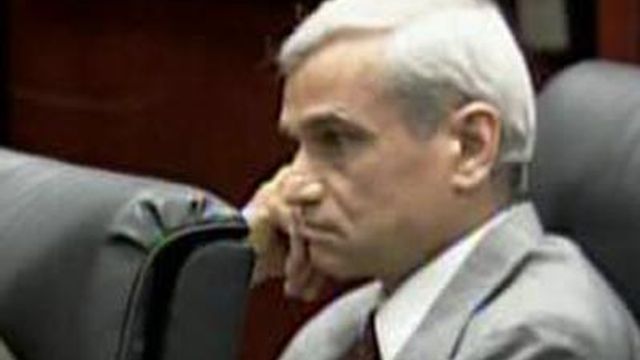Prosecutor punches holes in Cary man's alibi
The fate of Harish Patel, a Cary man accused of killing his estranged wife and setting her body on fire last year, lies in the hands of a jury after attorneys wrapped up their closing arguments Wednesday.
Posted — UpdatedHarish Purushottamdas Patel is on trial for first-degree murder in the death of Vanlata Patel, 57, who was found wrapped in a comforter tied with rope along Interstate 85 in Mecklenburg County, Va., on Jan. 16, 2008.
If convicted, the maximum sentence Harish Patel could receive is life in prison without parole.
The condition of her charred body made it difficult for medical examiners to determine the cause of death, but during the nearly three-week trial, Wake County Assistant District Attorney Doug Faucette contended that the defendant suffocated his wife in his apartment because they were going through a contentious divorce.
Vanlata Patel had been living with her son in Canada at the time of her death but was in Cary to decide on the division of the couple's marital assets. Her son reported her missing after she failed to make a flight back to Canada on Jan. 18, 2008.
Faucette told jurors Wednesday that the couple fought over money and that Harish Patel was suspicious that she was involved romantically with a mutual friend.
Vanlata Patel told friends that her husband told her that, if he couldn't have her, no one could, Faucette said.
"There's no one else. This is not a random act of violence," he added.
Defense attorney Jeff Cutler, however, called the state's case "a theory" with "lots of holes."
"There's an exaggeration factor here," Cutler said of Vanlata Patel telling others about how bad the couple's marriage was to justify why she should get a divorce.
"Investigators avoided evidence that might cause them to look in another direction," he added. "They got so narrowly focused on one suspect."
According to Faucette, surveillance video shows Harish Patel buying more than 11 gallons of gasoline and putting 2 gallons in a container at a Cary gas station at 10:05 a.m. the morning of his wife’s death. He drove home and had logged on to his computer by 10:19 a.m.
"What's the urgency (to get gas)?" Faucette asked.
The prosecutor said Harish Patel told investigators he was helping a stranded motorist on a nearby street, but he said Patel wouldn’t have had enough time to do that and then get back to his apartment and log onto his computer.
Faucette added that Patel's personality also doesn't "lend itself to being a good Samaritan."
"He has deceived investigators," he said.
Vanlata Patel made her last phone call from a friend's house at 10:36 a.m. Her watch stopped at 2:20 p.m.
Harish Patel told investigators he ate lunch at a Sbarro restaurant and was at The Streets at Southpoint in Durham until 4 p.m. on Jan. 16.
Faucette argued that was out of his character and that, for a man who rarely used cash, there is no record of him using a credit card.
"He lived in a small world. He only frequented a few places," he said. "It doesn't make sense he would go to Southpoint."
Also out of the ordinary, Faucette argued, was the 269 miles recorded on Harish Patel's car from Jan. 14, when he got new tires, to Jan. 23, when investigators seized his car.
"He is not a person who ever goes more than just a few miles around town," Faucette said, maintaining that Harish Patel used the car to drive to Virginia to dump his wife's body.
Investigators determined that all of Harish Patel's travels in that same 10-day period would have added up to approximately 68 miles. The one-way distance from his Cary apartment to the site where Vanlata Patel's body is 101 miles.
Faucette called the number "spot on."
Phone, bank and computer records support Harish Patel's activity over the same 10 days, but there was "big gap" in activity on the afternoon his wife was killed.
"What we don't have here is proof, ladies and gentleman," Cutler said.
Harish Patel's Internet activity showed no online communication about murder. Fingerprints from others were not taken or checked, and medical evidence could never conclusively determine how Vanlata Patel died, he said.
Nor could investigators ever determine the origin of the comforter in which her body was wrapped.
Police never looked at Vanlata Patel's male friend, whom Harish Patel thinks they should have considered.
"It doesn't make sense that he would do some things like a mastermind and other things (such as filling a gas can) like a complete idiot," Cutler said.
Cutler questioned why his client would dump his wife's body along an open part of Interstate 85 where someone could have seen him.
"Investigators have done nothing to figure out if anyone else was involved," he said. "They ignored the evidence."
• Credits
Copyright 2024 by Capitol Broadcasting Company. All rights reserved. This material may not be published, broadcast, rewritten or redistributed.






